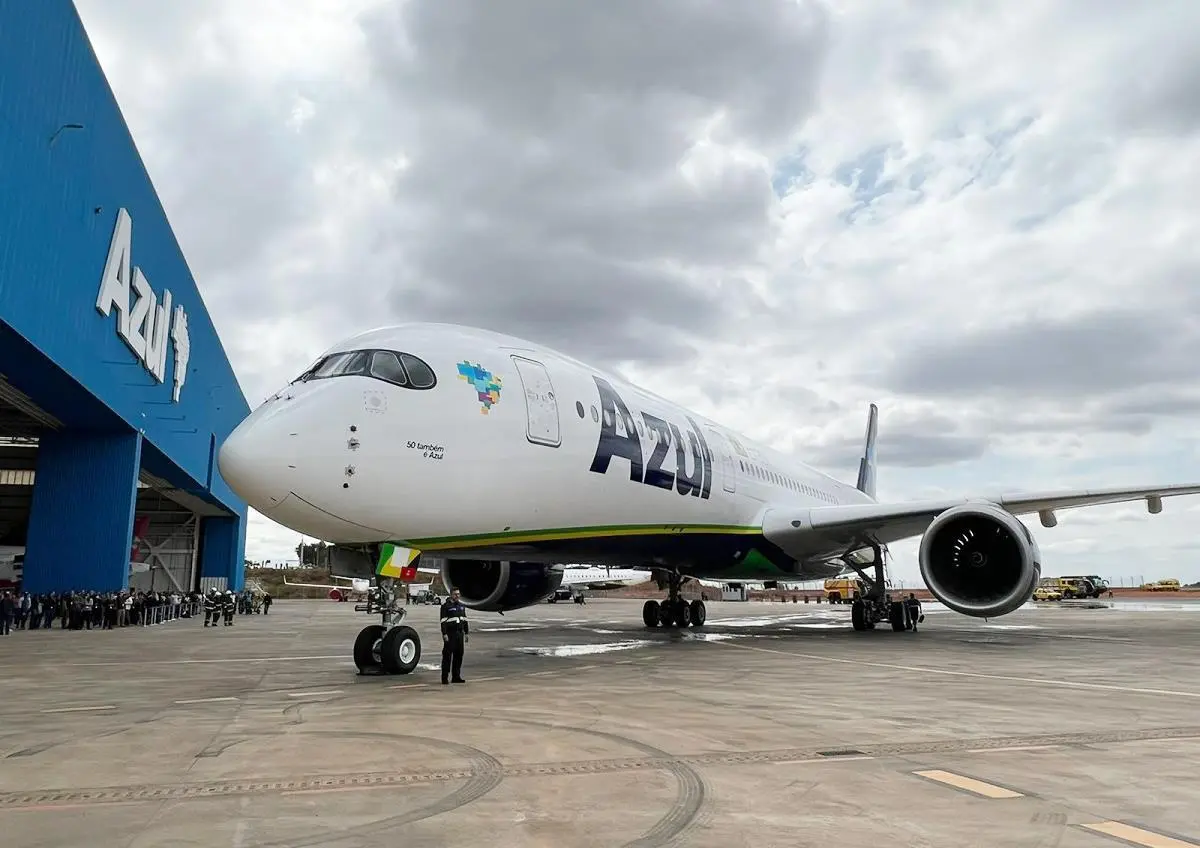Azul Airlines faces a critical moment in its financial restructuring efforts. The Brazilian carrier seeks to raise $300-400 million using its logistics arm, Azul Cargo, as collateral.
This move has sparked disagreements among its international bondholders. The core of the dispute lies in the varying guarantees each creditor group received for their bonds in the past.
These differences now complicate negotiations for new capital infusion. Some creditors argue that negotiations must consider these disparities.
Despite reports of a split, the Ad Hoc Group of Azul Noteholders, representing about 90% of senior secured notes due in 2028, 2029, and 2030, maintains unity.


They also hold 90% of convertible notes due in 2028. Azul’s financial strategy aims to avoid a deeper restructuring through Chapter 11 bankruptcy.
The company has initiated talks with lessors and bondholders to find a solution. Meetings took place in New York last week.
Azul’s Financial Maneuvers
Azul Cargo, valued at around $800 million, is expected to serve as the primary collateral for raising funds. This approach mirrors a previous move where Azul used its loyalty program as collateral for a loan last year.
The airline needs cash inflow this year to gain financial breathing room. Current creditors are the most likely source of this much-needed capital. However, negotiations with bondholders are intertwined with aircraft lease talks.
Bondholders have shown interest in providing more resources, but this new money cannot be used to pay lessors. Consequently, the lessor debt must be resolved before new funds can be raised.
Lessor debts totaled about R$18 billion at the end of the second quarter. Current negotiations involve five major lessors holding over 90% of this debt.
Azul renegotiated its lessor debt last year, involving the issuance of $370.5 million in unsecured debt securities. The deal also included an option for lessors to receive $570 million in Azul preferred shares.
Due to unfavorable exchange rates and a crisis in Rio Grande do Sul, Azul’s stock performance has been poor. This has led to a new round of talks to avoid significant dilution.
Current discussions with lessors aim to exchange a fixed portion of the company for debt-to-equity conversion. The dilution is expected to be around 25%.
Azul sees a favorable negotiation window as it’s not in default on its bonds. This situation allows for more amicable discussions with creditors.
The Brazilian government’s decision to allow the use of the National Civil Aviation Fund (FNAC) as loan collateral provides additional support. However, airlines will officially access these resources only next year.
As Azul navigates these complex financial waters, the outcome of these negotiations will be crucial for the airline’s future stability and growth.

